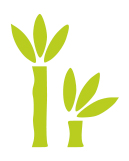Fair Pricing
 Approximately 70,000 independent farmers supply around 40 percent of the cane processed by Brazilian sugarcane mills. To help ensure fair and equitable relationships between growers and millers, these groups established an innovative sugarcane payment system in 1999.
Approximately 70,000 independent farmers supply around 40 percent of the cane processed by Brazilian sugarcane mills. To help ensure fair and equitable relationships between growers and millers, these groups established an innovative sugarcane payment system in 1999.
This voluntary program is overseen by a nonprofit association, known as Consecana – the Council of Sugarcane, Sugar and Ethanol Producers in the State of São Paulo. The group represents both sugar and ethanol processors (UNICA) and sugarcane growers (ORPLANA), and its primary objective is to share risks equitably. The Consecana payment system is based on two fundamental principles:
- The price paid to cane producers is proportional to their share of industrial revenue. On average, sugarcane production accounts for 60 percent of total sugar and ethanol production costs. Therefore, sugarcane growers receive around 60 percent of the agro-industrial revenue.
- The industry pays more for sugarcane with higher sucrose content. The value of sugarcane is based on the so-called Total Recoverable Sugar (or ATR in Portuguese). ATR corresponds to the amount of sugar available in the raw material minus the losses in the manufacturing process.
The money sugarcane growers collect depends on the prices for sugar and ethanol sold by processors in domestic and foreign markets. So transparency is crucial to the Consecana model. Price surveys of Brazilian and international markets are conducted by a neutral body – the Center for Advanced Studies in Applied Economics (Cepea), a research center within the University of São Paulo. In addition, cane growers have the right to monitor mill laboratories 24 hours per day.
Consecana is a dynamic system, and the group reevaluates its rules every five years to adapt to new market developments. Other sugarcane producing states consider this fair-pricing program a success, and many have either adopted a similar system or to rely on information from Consecana.
WHAT'S NEW
Sugarcane harvest for South Central Brazil for the second half of November 2020 Read on